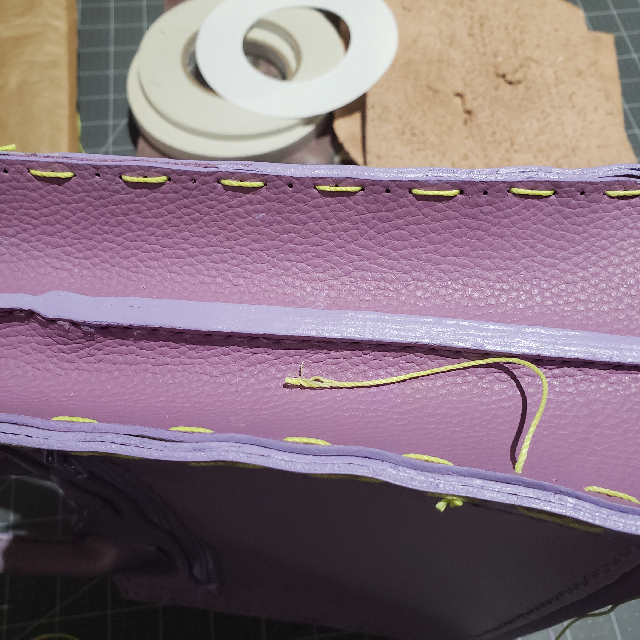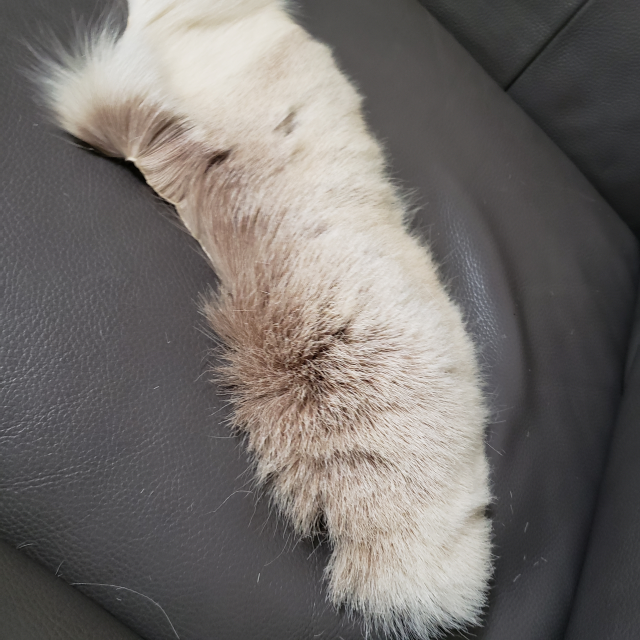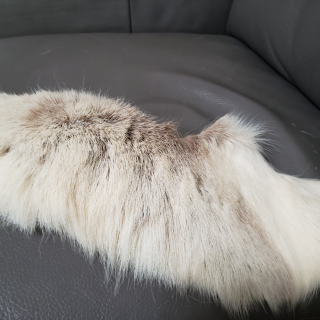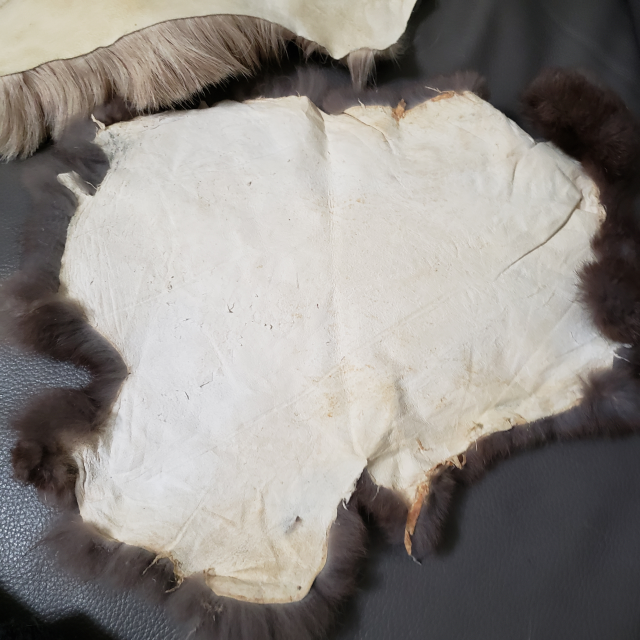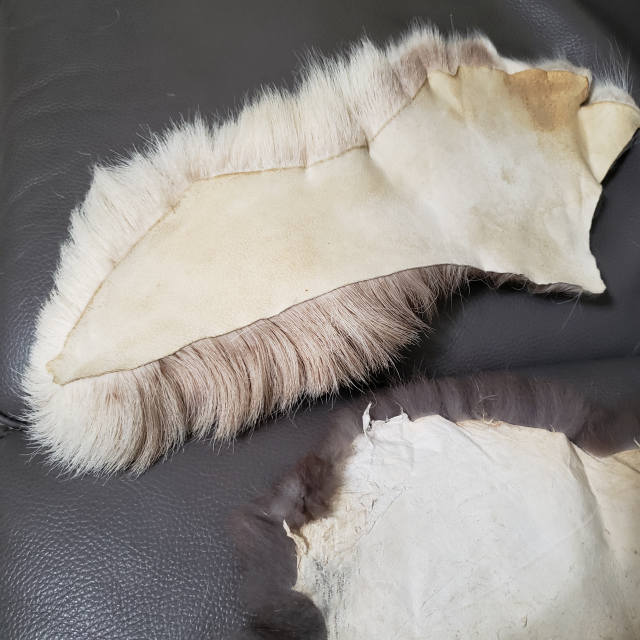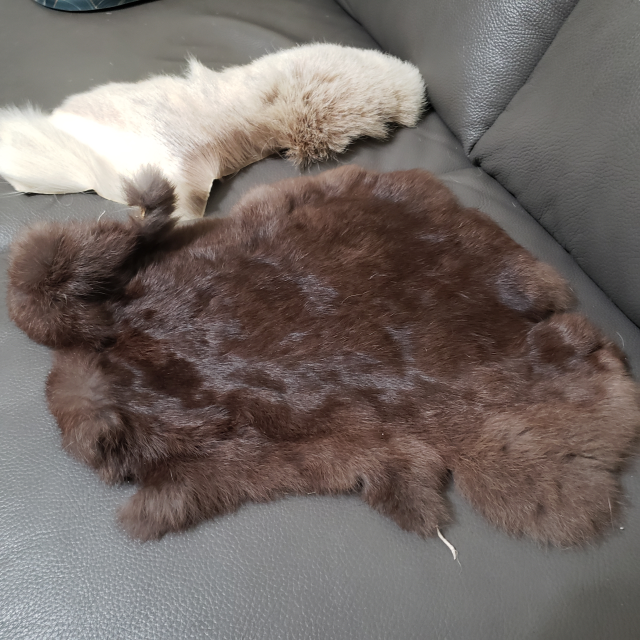-
Posts
1,291 -
Joined
Content Type
Profiles
Forums
Events
Blogs
Gallery
Store
Everything posted by SUP
-
@Sheilajeanne Looks like Tandy hopes people who prefer either will buy their kits.! @Dwight I know why you laughed! There is nothing about it online! Hmmm. I wonder if anyone on this site can enlighten us...
-
@Dwight When I came across my first one, my knife ran over the ruler and ... blood sacrifice. How can we recognize these? Only when cutting? and what are they, these hard areas?
-
Thank you @Sheilajeanne I will watch out. I was just wondering whether to buy one of their kits.
-
Oh yes! Forgot that one.
-
We all have our pet peeves. I wonder if there are some that are more 'popular' as pet peeves than others. These are mine - first and foremost - finishing the edges! I don't mind veg tanned leather - that is actually simple compared to finishing the edges of chrome tanned leather. That, no matter how smooth, looks tacky. So it ends up being a beautiful product with tacky edges, at least to my eyes. And I do match colors etc. as much as I can too. Another one? Bought patterns in which the stitching holes are always too big for the recommended thread - so I match the color well and it looks like an item with lines of holes everywhere!!! Used to be cutting leather but now, with my trusty box cutter, I am delighted. My beautiful, expensive, round knives have pride of place on the wall, looking pretty... Love to hear what all of you have as pet peeves.
-
@dikman, good one. Informative.
-
@tsunkasapa, okay. This is anyway a small piece. it looks like something cut out of a larger piece.
-

whats a good leather and thickness to wet mold?
SUP replied to ToddW's topic in Leatherwork Conversation
Yes, I use it all the time too and it works fine for me as well. The only complaint I have about it is that it does not usually stain well with Vinegaroon - turns a dull grey. @ToddW, if you plan to dye your leather with that, maybe you could test a piece first. -
@tsunkasapa, Yes, I was wondering if it might be something like that though I was wondering more about whether it might be wolf or something like that. Rabbit fur feels different - so soft and fluffy. @fredk this looks soft and fluffy with long fur but the white one that I have shown in the photographs is not as soft and the fur is like long straight hair.
-
-
-

Looking for a source for a few things.. any help is appreciated
SUP replied to ToddW's topic in Leatherwork Conversation
@ToddW, Most items come from China anyway. When we use Aliexpress or Temu, we just cut out the middlemen and get the same items cheaper. -
I think you get a cheaper version on Temu as well. Around the same price as aliexpress.
-
Will do. I got them for $2. My dog loves them... will probably chew them before I can do anything with them. She keeps eyeing them. Thank you @fredk and @bladegrinder.
-
@bladegrinder Both of them? The white has such long hair!
-
Dogs have individual personalities which are as unique as us humans, don't they? My dog loves ice and carrots and chomps up both, leaving nothing for me to find. The only thing she doesn't like is her kibble - no matter which I get her. So now I make her food - everyone laughs about it - I spend more time making her food than I ever have spent on making ours! My cats were the same - one loved mushrooms more than chicken and another had to have sliced tomatoes for breakfast year in, year out all her life. Also sweet corn soup and papaya! The same cat loved an Indian fast food called Sevpuri so much, it was the only time she ate from my plate when I was distracted. The dish is vegan - not that I knew it then!
-
The back of the same furs. The brown patch on the white one is where my dog found it and licked it. Caught her just in time!
-
I got these two furs for a couple of dollars yesterday. They are glossy and appear clean. I am completely clueless about furs and would love to know what animals they come from. Before I think of using them, I would like to give them a light cleaning. How can I do that? I would appreciate any help with this. The backs of the furs is posted in the next post.
-
Standing on one leg? The left on odd hours.... Absolutely necessary.
-

Need Vinegaroon Help
SUP replied to Dwight's topic in Dyes, Antiques, Stains, Glues, Waxes, Finishes and Conditioners.
I always use Vinegaroon and always rinse in plain running water each time I dip it in Vinegaroon. Soaking leather that turns grey instead of black, in strong tea helps but I always rinse in running water after soaking the leather in tea and again, rinse very well after the Vinegaroon treatment because otherwise, loose tannins that remain on the leather get dyed black and rub off or run when wet. I keep the wet leather on paper towels and rinse until the water draining on the towels is not dark. Whether using tea or not, I always rinse well in running water and never eve user baking soda. This is because the pH of vinegar is about 2.5 and that of water is neutral at about 7, so rinsing really well in running water keeps the pH at around 5, which is ideal for leather. Using baking soda raises the pH too much and alkalinity is really bad for leather. Vinegaroon always collects rust over time since most white vinegar is only 5% concentration of Acetic acid and the rest is water. So any extra iron in the mixture that does not form iron acetate forms rust. Straining helps. I rarely do that either - too lazy - I just wash the leather well after a dip, to remove the rust. It is better I strain it actually. After a good wash, the vinegar smell dissipates and is gone in a day or so. Never had a problem with it. -
Frankly, @1985, I don't give a hoot about people questioning me or saying anything at all about what I am doing. I just answer them as I am answering you and have answered others in the past. At least I am questioning and not just blindly accepting what people have said over 100s of years. The world has come a long way in those 100s of years - I like to be open to new ideas, try them and if they don't work? Fine. If they do, something new learnt. Beyond that, I'm doing this for me and anyone else who is interested.
-
Those are so beautiful! I would not feel like using them.
-
@1985 Our experiment is for the ordinary person who wonders what to use, not something I plan to publish in a journal. I am pretty familiar with how to conduct scientific experiments - having a background in research, among other things. Scientific experiments, if done truly scientifically, select very narrow aims or become too generalized to reach true scientific conclusions. But then, half the time, so called 'scientific conclusions' have such narrow limits that they are not of much use to the layman. The entire process, if I want to go down that path, will be much more complicated than what you are describing. It also cannot be done by one person or even 2 or 3 people; it will require a team of people over decades. Otherwise it would be pointless. Unless I want a good part of it to be theory - information from people - which is so much all word-of-mouth - "I heard from this old saddler" and, "My grandfather used this" and so on. Nothing wrong with that, but is that the only thing? That is, in fact, what I am questioning and the reason why we are doing this informal experiment. For me, the question started with wondering why people said mineral oil, indeed any petroleum products, are bad for leather, while at the same time, in ignorance, praising several products which are full of them. I decided to check if it is true and we just added a few more oils for comparison and as a matter of further curiosity. @fredk, @chuck123wapati and I are testing several oils on veg-tanned leathers. One of these days, I plan to expand to other leathers as well. But this is a fun, informal experiment. I, for one, am not interested in setting this up as a formal experiment, contacting tanneries and so on. You have evidently given this a lot of thought. If you want to set up a more scientific experiment, go right ahead. It will be interesting to learn more about it.
-
@Handstitched, have you tried giving her plain pieces of ice? My dog loves to crunch on them in summer. It's a game for her to chase it around on the floor.



